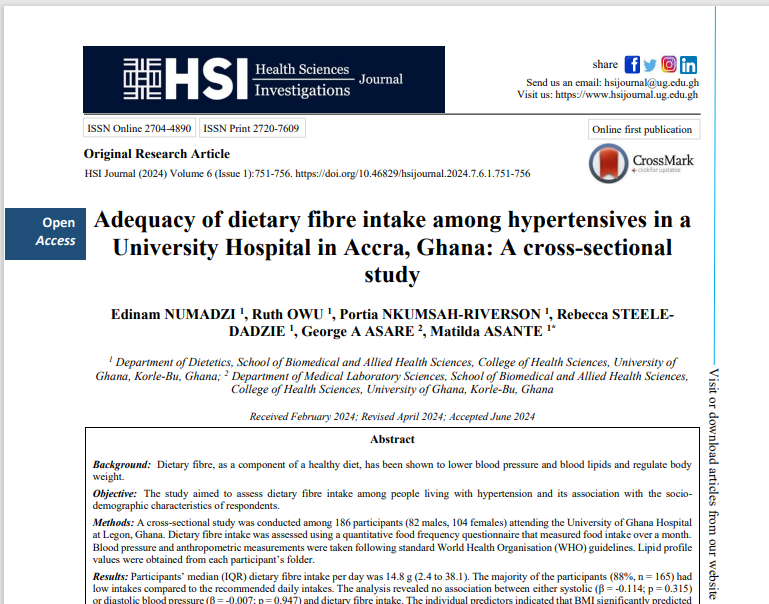Adequacy of Dietary Fibre Intake among Hypertensives in a University Hospital in Accra, Ghana: A Cross-sectional Study
Abstract
Background: Dietary fibre, as a component of a healthy diet, has been shown to lower blood pressure and blood lipids and regulate body weight.
Objective: The study aimed to assess dietary fibre intake among people living with hypertension and its association with the sociodemographic characteristics of respondents.
Methods: A cross-sectional study was conducted among 186 participants (82 males, 104 females) attending the University of Ghana Hospital at Legon, Ghana. Dietary fibre intake was assessed using a quantitative food frequency questionnaire that measured food intake over a month.Blood pressure and anthropometric measurements were taken following standard World Health Organisation (WHO) guidelines. Lipid profile values were obtained from each participant’s folder.
Results: Participants’ median (IQR) dietary fibre intake per day was 14.8 g (2.4 to 38.1). The majority of the participants (88%, n = 165) had low intakes compared to the recommended daily intakes. The analysis revealed no association between either systolic (β = -0.114; p = 0.315) or diastolic blood pressure (β = -0.007; p = 0.947) and dietary fibre intake. The individual predictors indicated that BMI significantly predicted diastolic blood pressure (p = 0.033), and total energy intake significantly predicted systolic blood pressure (p = 0.019). The major source of dietary fibre was a cereal legume mix (tom brown), which contributed 24.5% of fibre to the daily fibre intake.
Conclusion: Reported dietary fibre intake among the study population was below the recommendation for fibre intake according to the United States Food and Drugs Administration Daily Reference Value. Dietary fibre intake was not associated with either systolic or diastolic blood pressure. Nutrition education strategies such as promoting whole meals and consuming plant-based foods should be intensified among people living with hypertension to encourage the consumption of meals rich in fibre.


